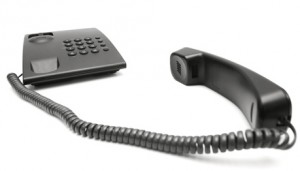
Case: The Entertainer, Inc. v. Duffy, 2012 Ark. 202, decided on May 10, 2012.
Main Issue
Under what circumstances may a defendant get a default judgment set aside when the default is allegedly the result of the defendant being abandoned by his attorney?
Background
This case originated as a personal injury action brought by Cory Duffy, the patron of a drinking establishment operated by The Entertainer, Inc. (“TEI”) and Charles Wells. Duffy sought damages against TEI and Wells after he was shot twice while waiting outside the business for a taxi.
Duffy filed his suit on November 30, 2009. Over the next 13 months, both defendants ended up in default.
Wells was served on December 19, 2009. No response was filed. On February 1, 2010, default judgment was entered against him. Later that same day, attorney J.L. Wilson filed an answer for both defendants.
Wilson never filed a motion to set aside Wells’s default judgment.
In August 2010, TEI was served with discovery requests. No response was forthcoming. Duffy’s motion to compel was granted, but TEI did not respond to the order to respond to the discovery.
Duffy sought sanctions, and TEI again did not respond.
In January 2011, the trial court ordered sanctions against TEI, struck TEI’s answer, and entered default judgment against the corporation.
Wilson never filed a motion to set aside TEI’s default judgment.
On April 1, 2011, a damages hearing was held. Both defendants had been given notice, but neither appeared. The trial court awarded $520,000 in compensatory damages and $1,560,000 in punitive damages.
Ten days later, new counsel entered an appearance for the defendants and filed a motion for new trial per Rule 59(a) of the Arkansas Rules of Civil Procedure.
On May 11, 2011, the motion was deemed denied. This appeal followed.
Defendants’ Argument on Appeal
On appeal, the defendants argued that their Rule 59(a) motion for new trial should have been granted because their substantial rights were impaired since they were abandoned by their attorney.
Citing Jones-Blair Co. v. Hammett, 326 Ark. 74, 930 S.W.2d 335 (1996), they argued that a new trial should have been granted since their attorney abandoned them and did not comply with the attorney withdrawal procedure of Rule 64(b).
Decision
The supreme court disagreed.
The court noted that:
“[A] client is generally bound by the acts of his counsel and cannot avoid the consequences of his attorney’s neglect or omissions.”
The court further determined that defendants’ situation was different from the client’s in Jones-Blair in a critical respect. In Jones-Blair, the appellant was diligent. At the hearing on its motion to have a judgment set aside after an attorney abandonment, the Jones-Blair appellant had promptly petitioned to have the judgment set aside, and it presented evidence to establish that it had stayed in communication with its attorney.
By contrast, in the present case, the defendants presented no evidence that they kept in contact with their attorney or attempted to keep abreast of the proceedings.
As such, the trial court did not abuse its discretion in not granting the new trial. Judgment affirmed.
[Formatting revised: 1-11-2018]
